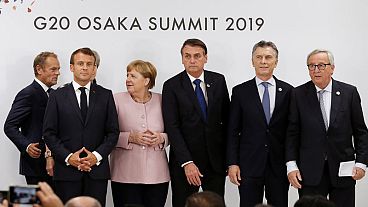By Marianna Parraga and Mircely Guanipa
(Reuters) - Venezuela's oil exports fell in August to their lowest level in 2019, internal reports and Refinitiv Eikon data showed, hurt by a halt in purchases by the nation's second largest customer, China National Petroleum Corp (CNPC), following tougher U.S. sanctions.
Overall exports of crude and refined products by state-run oil company Petroleos de Venezuela (PDVSA) and its joint ventures declined last month to some 770,000 barrels per day (bpd) from 992,565 bpd in July and 1.13 million bpd in June, according to revised data.
Last month, China's state-run CNPC cancelled loadings of Venezuelan crude it had scheduled for August, after Washington issued an executive order that froze Venezuelan government property on U.S. soil and warned foreign companies they also could face sanctions for doing business with PDVSA.
PDVSA is responsible for delivering oil to Chinese firms to repay billions of dollars loaned to Venezuela. The United States has been ratcheting up efforts to oust President Nicolas Maduro, whose 2018 re-election is deemed illegitimate by most western nations.
The drop comes even as a number of shipments are moving on tankers that are not turning on their signalling transponders while approaching or leaving Venezuelan waters, according to Refinitiv Eikon vessel tracking data. This has made it difficult to fully measure exports and confirm their delivery destination.
Since the suspension, Russia's state-run oil company Rosneft <ROSN.MM> has increased its share of Venezuelan oil, with China as primary destination. Rosneft lifted 65% of PDVSA's total exports in August versus 49% in July, according to internal PDVSA trade reports.
(For a graphic on Venezuela's 2019 oil exports, please see here - https://fingfx.thomsonreuters.com/gfx/editorcharts/VENEZUELA-OIL-EXPORTS/0H001QETK86L/index.html)
PDVSA did not reply to a request for comment.
The second-largest destination of Venezuelan oil last month was Europe, where Spanish oil firm Repsol <REP.MC> has continued swapping refined products for Venezuelan crude. No. 3 was Cuba, Maduro's closest political ally. Shipments to India, previously a preferred market for Venezuelan crude, fell to a single 1-million-barrel cargo, the data showed.
SILENT RUNNING
Between June and July, very large crude carrier (VLCC) Marina M stopped signalling as it approached to pick up a cargo at Venezuela's Jose terminal, according to independent service TankerTrackers.com and satellite images by Planet Labs Inc seen by Reuters.
The Malta-flagged tanker loaded Venezuelan crude on July 12. Its transponder last week was picked up after completing a trip to Sikka port in India. The vessel is now waiting to discharge, according to Refinitiv Eikon.
"It was a big satellite data gap, geographically speaking," said Samir Madani, a cofounder of TankerTrackers.com.
International law requires ships at sea to have a satellite tracking device on board. However, a ships' master has discretion to turn off the device on safety grounds with the permission of the vessel's flag state.
From August through early September, two other vessels disappeared from vessel tracking while in Venezuelan waters. Tanker Patmos I stopped signalling its location while performing a trans-shipment manoeuvre at Amuay port in Venezuela, and the Princess Mary did the same while loading at Jose port, according to vessel tracking data. Both have a Liberia flag.
The Marina M and the Princess Mary were chartered by Rosneft. Tipco Asphalt <TASCO.BK> chartered the Patmos I, according to the PDVSA's documents.
Eastern Mediterranean Maritime Ltd, which manages the Marina M, in an email said it has never entered into any contract with PDVSA or a U.S.-sanctioned firm. It declined to comment on details of the charter contract to load oil in Venezuela, but noted that transportation covering Rosneft's oil trade with the South American nation does not violate U.S. sanctions.
Rosneft, Tipco and the operators of the other vessels, Navig8 Group and Dynacom Tankers, did not reply to requests for comment.
Some tankers going from Venezuela to Cuba also have not signalled locations. In August, tankers Manuela Saenz, Sandino, Carlota C, Giralt, Terepaima and Lone.Star completed trips to Cuba to deliver almost 70,000 bpd of Venezuelan crude and products, according to the data.
(Reporting by Marianna Parraga in Mexico City and Mircely Guanipa in Punto Fijo; editing by Gary McWilliams and David Gregorio)



